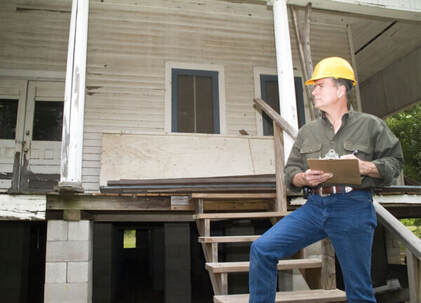When to Apply for a Building Permit
Embarking on a home renovation venture can be an exhilarating experience, whether you're revitalizing your living space or enhancing its functionality. However, it's imperative to recognize that not all home improvement endeavors can proceed without securing the requisite permits.
Permit prerequisites vary based on your locality, project scope, and adherence to local building codes. This article will explore some common home renovation undertakings that typically demand permits, ensuring compliance with the law and preempting potential complications in the future.
Structural Modifications Any renovation involving structural changes to your home typically mandates a permit. This encompasses:
Permit prerequisites vary based on your locality, project scope, and adherence to local building codes. This article will explore some common home renovation undertakings that typically demand permits, ensuring compliance with the law and preempting potential complications in the future.
Structural Modifications Any renovation involving structural changes to your home typically mandates a permit. This encompasses:
- Adding or Removing Walls: Whether demolishing a wall to create an open layout or adding walls for room partitioning, alterations to your home's structural integrity usually necessitate a permit.
- Foundation Work: Introducing a new foundation, repairing an existing one, or altering your home's foundation typically requires a permit to ensure safety and structural integrity.
- Roofing: Substantial changes or replacements to your roof, such as altering its pitch or adding dormers, often necessitate a permit to guarantee the safety and weather resistance of your home.
- Installing or Altering Electrical Circuits: Adding outlets, rewiring rooms, or changing your electrical panel falls under this category.
- Installing New Lighting Fixtures: Upgrading your home's lighting, especially if it involves wiring changes, typically demands a permit.
- Installing Electrical Appliances: Adding appliances like water heaters, air conditioning units, or whole-house generators usually requires a permit for safety and compliance with electrical codes.
- Installing New Plumbing Fixtures: Adding bathrooms or kitchen sinks, bathtubs, or toilets typically necessitates permits to ensure proper drainage, venting, and water supply.
- Relocating or Modifying Plumbing Pipes: Changes to your home's plumbing layout, like moving pipes or rerouting water lines, often require a permit.
- Home Additions: Expanding living space by adding rooms or a new story generally requires permits to comply with local zoning and building codes.
- Garage Conversions: Transforming a garage into living space usually necessitates permits, particularly if it involves structural changes or adding plumbing, electrical, or HVAC systems.
- Installing New Fences: Building or modifying fences may require a permit to comply with local zoning regulations.
- Building Decks or Patios: Constructing outdoor spaces typically demands permits, considering their potential impact on drainage, property lines, and safety.


